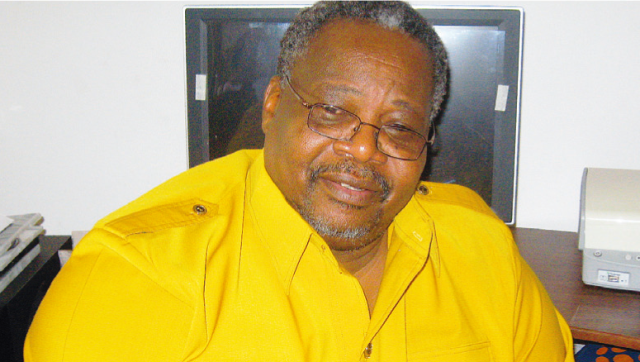
Tanzania yet to implement new UN’s Nelson Mandela Rules on Prisons
IT did not come to me as a surprise when the Arusha Member of Parliament, Godbless Lema came up with that statement of wishing a good number of Mps could be incarcerated so that they can become more aware of the bad prison laws which still exist in our statutes books.
And actually that was just a follow up of another member of parliament some few years back when she tested the life in a remand prison cell at Tabora had also to come up with serious complaints and allegations in the Parliament on how inhuman the life is in prisons.
In Zanzibar too, the Chief Justice of Zanzibar Omar Othman Makungu once paid a visit to some of the reformatory centres (prisons) in Zanzibar and came out with a feeling that was described by the press, “the hellish life in our crammed jails.
” That reminds us of the prisons in antiquity which was self –consciously punitive; their internal regimes were intentionally inhumane.
Imprisonment was part of the suffering intended to prisoners to pay back for the harm done by their crimes. It was very agonizing when the famous prisoner Mr. Nelson Mandela once said that “no one truly knows a nation until one has been inside its jails. A nation should not be judged by how it treats highest citizens, but its lowest.”
Of late there have been a lot of suggestions coming from different quarters on improvement of the prison’s conditions! Several members of parliament in the past have made their voices on how to salvage the prison service which seems to receive a raw deal when it comes to financial resources.
It is disheartening to hear from government officials that prisons are not places for enjoyment but are of punishment. That does not auger well with the spirit of rehabilitation and social reintegration.
The prison environment is supposed to be conducive to a human habitation. It should be known that offenders are sent to prisons as a punishment and not for punishment and therefore prison environments must be safe and humane and as close as possible to conditions in the community.
Prison is that component of criminal justice system which has the greatest impact on the freedoms, liberties and rights of individuals. Therefore members of Prison Service involved in corrections must respect fundamental human rights in every aspect of their work and must be guided by a belief in fairness and equality under and before the law.
The punishment is awarded by the court of law by depriving offender’s freedom they enjoy by isolating them from their families to the prisons and is not a question of the prison authority to punish them again.
Suggesting that prison is not a place of enjoyment amounts to endorsing the prison authority to punish offenders and that would make President Mandela in his grave to remember his incarceration days which he has vowed not to remember! Why does it take so long to adopt the emerging new trends in our criminal justice system?
The UN Standard Minimum Rules are often regarded by states as the primary source of standards relating to treatment in detention, and are the key framework used by monitoring and inspection mechanisms in assessing the treatment of prisoners. But these have been revised and are known as Nelson Mandela Rules. Countries are encouraged to reflect the “Mandela Rules” in their national legislation so that prison administrators can apply them in their daily work.
Just recently the Minister for Home Affairs Mwigulu Nchemba cautioned the prison officials to crack the whip on prisoners who are still engaging in the criminal activities while in jail by communicating with colleagues outside the prison. Probably you might have heard the criminal terminology known as “prison subculture” very common to penologists.
This is necessitated by having obsolete correctional system faced with the emergence of prison gangs and new organized crimes. Such offenders prefer to be incarcerated as a way of furthering recruitment within the prisons of new willing prison radicalized offenders such as terrorist, pirates, religious fanatics and political deviants.
These prison gangs share common values, norms, beliefs and customs with their own formulated inmate code and they are criminal organizations that originate within the penal system operating within correctional facilities. They are also self-perpetuating criminal entities that can continue their criminal operations outside the confines of the penal system
. It is a prerequisite to have an effective parole system that can monitor and support the released offender on parole through gradual controlled release to half way houses. In developed countries also now evidenced in our country, gangs commit criminal activities, recruit new members in urban, suburban, and rural regions across and develop criminal associations that expand their influence over criminals.
The most notable trends is the current “boda boda” criminals with unprecedented solidarity. The overall increase in gang membership and the expansion of criminal street gangs control of street-level drug sales and collaboration with other criminal organizations.
Gangs are becoming more violent while engaging in less typical and lower-risk crime, such as prostitution and whitecollar crime. Gangs are more adaptable, organized, sophisticated, and opportunistic, exploiting new and advanced technology as a means to recruit, communicate discretely, target their rivals, and perpetuate their criminal activity.
The indicators are already flushing red. These include the presence of drugs in our country, the new advanced technology, reliable communication system, cell-phones, bodaboda; all these if not well managed can be catalysts to the speeding of prison gangs mushrooming in our prisons.
The introduction of unit management in prisons would go a long way in managing the emerging of prison gangs that may escalate the sophistry in commission of crimes.
The prison gangs, prison radicalization are imports which come together with the new technology as such should be dealt with the same technology embraced in the new Correctional Philosophy of Risk Assessment and Management.
Source : Daily News



















